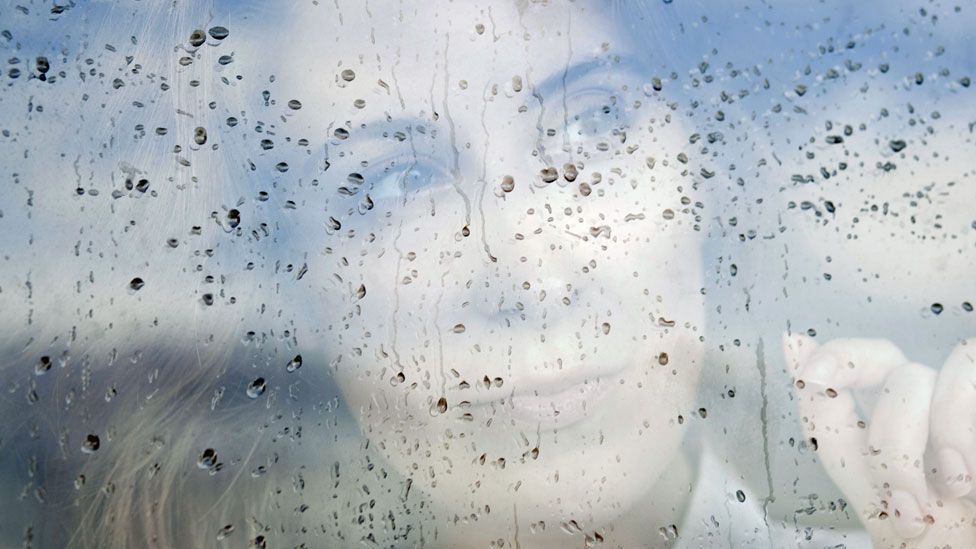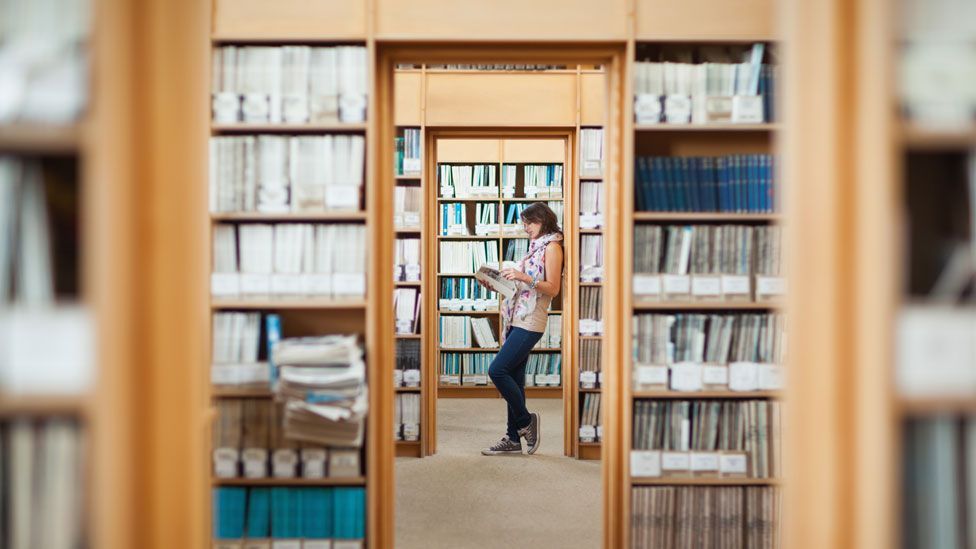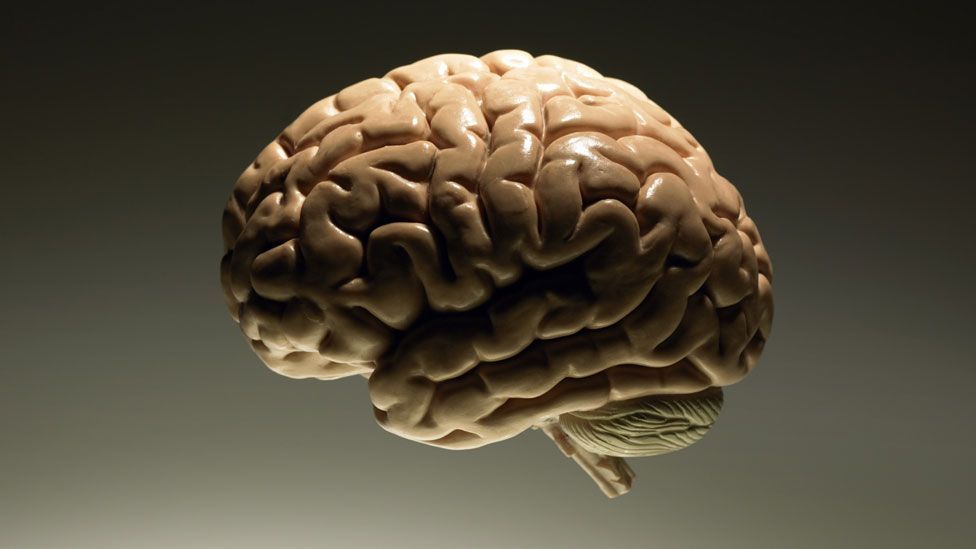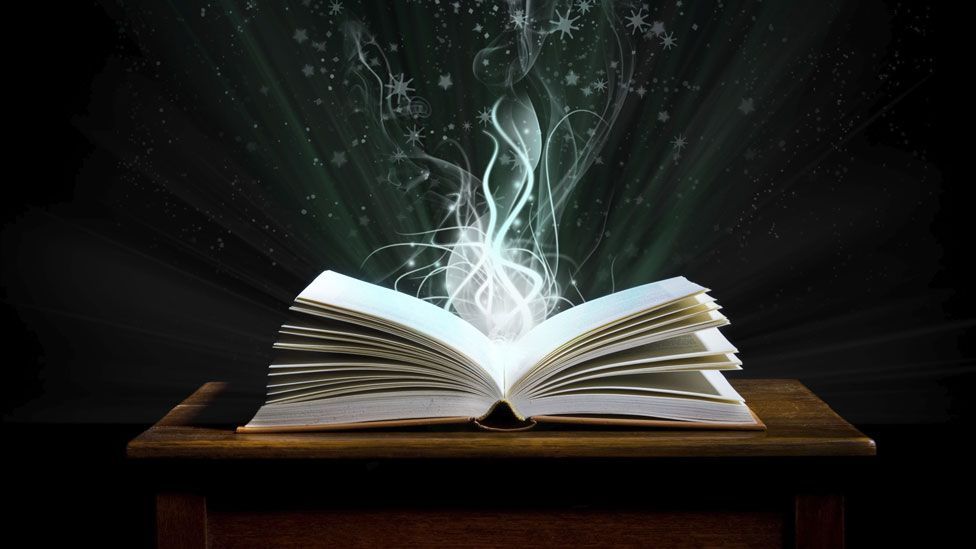This article from Counterpunch is a commentary of the insightful movie: The Social Dilemma, analyzing the impact of Social Medias on our lives. This being Counterpunch, many arguments are anticapitalist, rightly or wrongly: You judge. But many points are interesting and should be discussed more than they are!
October 2, 2020
by Jonathan CookIf you’re wondering
what the hell is going on right now – the “Why is the world turning to
shit?” thought – you may find Netflix’s new documentary The Social
Dilemma a good starting point for clarifying your thinking. I say
“starting point” because, as we shall see, the film suffers from two
major limitations: one in its analysis and the other in its conclusion.
Nonetheless, the film is good at exploring the contours of the major
social crises we currently face – epitomised both by our addiction to
the mobile phone and by its ability to rewire our consciousness and our
personalities.
The film makes a convincing case that this is not simply an example
of old wine in new bottles. This isn’t the Generation Z equivalent of
parents telling their children to stop watching so much TV and play
outside. Social media is not simply a more sophisticated platform for
Edward Bernays-inspired advertising. It is a new kind of assault on who
we are, not just what we think.
According to The Social Dilemma, we are fast reaching a kind of human
“event horizon”, with our societies standing on the brink of collapse.
We face what several interviewees term an “existential threat” from the
way the internet, and particularly social media, are rapidly developing.
I don’t think they are being alarmist. Or rather I think they are
right to be alarmist, even if their alarm is not entirely for the right
reasons. We will get to the limitations in their thinking in a moment.
Like many documentaries of this kind, The Social Dilemma is deeply
tied to the shared perspective of its many participants. In most cases,
they are richly disillusioned, former executives and senior software
engineers from Silicon Valley. They understand that their once-cherished
creations – Google, Facebook, Twitter, Youtube, Instagram, Snapchat
(WhatsApp seems strangely under-represented in the roll call) – have
turned into a gallery of Frankenstein’s monsters.
That is typified in the plaintive story of the guy who helped invent
the “Like” button for Facebook. He thought his creation would flood the
world with the warm glow of brother and sisterhood, spreading love like a
Coca Cola advert. In fact, it ended up inflaming our insecurities and
need for social approval, and dramatically pushed up rates of suicide
among teenage girls.
If the number of watches of the documentary is any measure, disillusion with social media is spreading far beyond its inventors.
Children as guinea pigs
Although not flagged as such, The Social Dilemma divides into three chapters.
The first, dealing with the argument we are already most familiar
with, is that social media is a global experiment in altering our
psychology and social interactions, and our children are the main guinea
pigs. Millennials (those who came of age in the 2000s) are the first
generation that spent their formative years with Facebook and MySpace as
best friends. Their successors, Generation Z, barely know a world
without social media at its forefront.
The film makes a relatively easy case forcefully: that our children
are not only addicted to their shiny phones and what lies inside the
packaging, but that their minds are being aggressively rewired to hold
their attention and then make them pliable for corporations to sell
things.
Each child is not just locked in a solitary battle to stay in control
of his or her mind against the skills of hundreds of the world’s
greatest software engineers. The fight to change their perspective and
ours – the sense of who we are – is now in the hands of algorithms that
are refined every second of every day by AI, artificial intelligence. As
one interviewee observes, social media is not going to become less expert at manipulating our thinking and emotions, it’s going to keep getting much, much better at doing it.
Jaron Lanier, one of the computing pioneers of virtual reality,
explains what Google and the rest of these digital corporations are
really selling: “It’s the gradual, slight, imperceptible change in your
own behaviour and perception – that is the product.” That is also how these corporations make their money, by “changing what you do, what you think, who you are.”
They make profits, big profits, from the predictions business –
predicting what you will think and how you will behave so that you are
more easily persuaded to buy what their advertisers want to sell you. To
have great predictions, these corporations have had to amass vast
quantities of data on each of us – what is sometimes called
“surveillance capitalism”.
And, though the film does not quite spell it out, there is another
implication. The best formula for tech giants to maximise their
predictions is this: as well as processing lots of data on us, they must
gradually grind down our distinctiveness, our individuality, our
eccentricities so that we become a series of archetypes. Then, our
emotions – our fears, insecurities, desires, cravings – can be more
easily gauged, exploited and plundered by advertisers.
These new corporations trade in human futures, just as other
corporations have long traded in oil futures and pork-belly futures,
notes Shoshana Zuboff, professor emeritus at Harvard business school.
Those markets “have made the internet companies the richest companies in
the history of humanity”.
Flat Earthers and Pizzagate
The second chapter explains that, as we get herded into our echo
chambers of self-reinforcing information, we lose more and more sense of
the real world and of each other. With it, our ability to empathise and
compromise is eroded. We live in different information universes,
chosen for us by algorithms whose only criterion is how to maximise our
attention for advertisers’ products to generate greater profits for the
internet giants.
Anyone who has spent any time on social media, especially a combative
platform like Twitter, will sense that there is a truth to this claim.
Social cohesion, empathy, fair play, morality are not in the algorithm.
Our separate information universes mean we are increasingly prone to
misunderstanding and confrontation.
And there is a further problem, as one interviewee states: “The truth
is boring.” Simple or fanciful ideas are easier to grasp and more fun.
People prefer to share what’s exciting, what’s novel, what’s unexpected,
what’s shocking. “It’s a disinformation-for-profit model,” as another
interviewee observes, stating that research shows false information is
six times more likely to spread on social media platforms than true
information.
And as governments and politicians work more closely with these tech companies – a well-documented fact the
film entirely fails to explore – our rulers are better positioned than
ever to manipulate our thinking and control what we do. They can dictate
the political discourse more quickly, more comprehensively, more
cheaply than ever before.
This section of the film, however, is the least successful. True, our
societies are riven by increasing polarisation and conflict, and feel
more tribal. But the film implies that all forms of social tension –
from the paranoid paedophile conspiracy theory of Pizzagate to the Black
Lives Matter protests – are the result of social media’s harmful
influence.
And though it is easy to know that Flat Earthers are spreading
misinformation, it is far harder to be sure what is true and what is
false in many others areas of life. Recent history suggests our
yardsticks cannot be simply what governments say is true – or Mark
Zuckerberg, or even “experts”. It may be a while since doctors were
telling us that cigarettes were safe, but millions of Americans were
told only a few years ago that opiates would help them – until an opiate
addiction crisis erupted across the US.
This section falls into making a category error of the kind set out
by one of the interviewees early in the film. Despite all the drawbacks,
the internet and social media have an undoubted upside when used simply
as a tool, argues Tristan Harris, Google’s former design ethicist and
the soul of the film. He gives the example of being able to hail a cab
almost instantly at the press of a phone button. That, of course,
highlights something about the materialist priorities of most of Silicon
Valley’s leading lights.
But the tool box nestled in our phones, full of apps, does not just
satisfy our craving for material comfort and security. It has also
fuelled a craving to understand the world and our place in it, and
offered tools to help us do that.
Phones have made it possible for ordinary people to film and share
scenes once witnessed by only a handful of disbelieved passers-by. We
can all see for ourselves a white police officer dispassionately
kneeling on the neck of a black man for nine minutes, while the victim
cries out he cannot breathe, until he expires. And we can then judge the
values and priorities of our leaders when they decide to do as little
as possible to prevent such incidents occurring again.
The internet has created a platform from which not only disillusioned
former Silicon Valley execs can blow the whistle on what the Mark
Zuckerbergs are up to, but so can a US army private like Chelsea
Manning, by exposing war crimes in Iraq and Afghanistan, and so can a
national security tech insider like Edward Snowden, by revealing the way
we are being secretly surveilled by our own governments.
Technological digital breakthroughs allowed someone like Julian
Assange to set up a site, Wikileaks, that offered us a window on the real political
world – a window through we could see our leaders behaving more like
psychopaths than humanitarians. A window those same leaders are now
fighting tooth and nail to close by putting him on trial.
A small window on reality
The Social Dilemma ignores all of this to focus on the dangers of
so-called “fake news”. It dramatises a scene suggesting that only those
sucked into information blackholes and conspiracy sites end up taking to
the street to protest – and when they do, the film hints, it will not
end well for them.
Apps allowing us to hail a taxi or navigate our way to a destination
are undoubtedly useful tools. But being able to find out what our
leaders are really doing – whether they are committing crimes against
others or against us – is an even more useful tool. In fact, it is a
vital one if we want to stop the kind of self-destructive behaviours The
Social Dilemma is concerned about, not least our destruction of the
planet’s life systems (an issue that, except for one interviewee’s final
comment, the film leaves untouched).
Use of social media does not mean one necessarily loses touch with
the real world. For a minority, social media has deepened their
understanding of reality. For those tired of having the real world
mediated for them by a bunch of billionaires and traditional media
corporations, the chaotic social media platforms have provided an
opportunity to gain insights into a reality that was obscured before.
The paradox, of course, is that these new social media corporations
are no less billionaire-owned, no less power-hungry, no less
manipulative than the old media corporations. The AI algorithms they are
rapidly refining are being used – under the rubric of “fake news” – to
drive out this new marketplace in whistleblowing, in citizen journalism,
in dissident ideas.
Social media corporations are quickly getting better at
distinguishing the baby from the bathwater, so they can throw out the
baby. After all, like their forebears, the new media platforms are in
the business of business, not of waking us up to the fact that they are
embedded in a corporate world that has plundered the planet for profit.
Much of our current social polarisation and conflict is not, as The
Social Dilemma suggests, between those influenced by social media’s
“fake news” and those influenced by corporate media’s “real news”. It is
between, on the one hand, those who have managed to find oases of
critical thinking and transparency in the new media and, on the other,
those trapped in the old media model or those who, unable to think
critically after a lifetime of consuming corporate media, have been
easily and profitably sucked into nihilistic, online conspiracies.
Our mental black boxes
The third chapter gets to the nub of the problem without indicating
exactly what that nub is. That is because The Social Dilemma cannot
properly draw from its already faulty premises the necessary conclusion
to indict a system in which the Netflix corporation that funded the
documentary and is televising it is so deeply embedded itself.
For all its heart-on-its-sleeve anxieties about the “existential
threat” we face as a species, The Social Dilemma is strangely quiet
about what needs to change – aside from limiting our kids’ exposure to
Youtube and Facebook. It is a deflating ending to the rollercoaster ride
that preceded it.
Here I want to backtrack a little. The film’s first chapter makes it
sound as though social media’s rewiring of our brains to sell us
advertising is something entirely new. The second chapter
treats our society’s growing loss of empathy, and the rapid rise in an
individualistic narcissism, as something entirely new. But very obviously neither proposition is true.
Advertisers have been playing with our brains in sophisticated ways
for at least a century. And social atomisation – individualism,
selfishness and consumerism – have been a feature of western life for at
least as long. These aren’t new phenomena. It’s just that these
long-term, negative aspects of western society are growing
exponentially, at a seemingly unstoppable rate.
We’ve been heading towards dystopia for decades, as should be obvious
to anyone who has been tracking the lack of political urgency to deal
with climate change since the problem became obvious to scientists back
in the 1970s.
The multiple ways in which we are damaging the planet – destroying
forests and natural habitats, pushing species towards extinction,
polluting the air and water, melting the ice-caps, generating a climate
crisis – have been increasingly evident since our societies turned
everything into a commodity that could be bought and sold in the
marketplace. We began on the slippery slope towards the problems
highlighted by The Social Dilemma the moment we collectively decided
that nothing was sacred, that nothing was more sacrosanct than our
desire to turn a quick buck.
It is true that social media is pushing us towards an event horizon.
But then so is climate change, and so is our unsustainable global
economy, premised on infinite growth on a finite planet. And, more
importantly, these profound crises are all arising at the same time.
There is a conspiracy, but not of the Pizzagate variety. It
is an ideological conspiracy, of at least two centuries’ duration, by a
tiny and ever more fabulously wealth elite to further enrich themselves
and to maintain their power, their dominance, at all costs.
There is a reason why, as Harvard business professor Shoshana Zuboff
points out, social media corporations are the most fantastically wealthy
in human history. And that reason is also why we are reaching the human
“event horizon” these Silicon Valley luminaries all fear, one where our
societies, our economies, the planet’s life-support systems are all on
the brink of collapse together.
The cause of that full-spectrum, systemic crisis is not named, but it
has a name. Its name is the ideology that has become a black box, a
mental prison, in which we have become incapable of imagining any other
way of organising our lives, any other future than the one we are
destined for at the moment. That ideology’s name is capitalism.
Waking up from the matrix
Social media and the AI behind it are one of the multiple crises we
can no longer ignore as capitalism reaches the end of a trajectory it
has long been on. The seeds of neoliberalism’s current, all-too-obvious
destructive nature were planted long ago, when the “civilised”,
industrialised west decided its mission was to conquer and subdue the
natural world, when it embraced an ideology that fetishised money and
turned people into objects to be exploited.
A few of the participants in The Social Dilemma allude to this in the
last moments of the final chapter. The difficulty they have in
expressing the full significance of the conclusions they have drawn from
two decades spent in the most predatory corporations the world has ever
known could be because their minds are still black boxes, preventing
them from standing outside the ideological system they, like us, were
born into. Or it could be because coded language is the best one can
manage if a corporate platform like Netflix is going to let a film like
this one reach a mass audience.
Tristan Harris tries to articulate the difficulty by grasping for a
movie allusion: “How do you wake up from the matrix when you don’t know
you’re in the matrix?” Later, he observes: “What I see is a bunch of
people who are trapped by a business model, an economic incentive,
shareholder pressure that makes it almost impossible to do something
else.”
Although still framed in Harris’s mind as a specific critique of
social media corporations, this point is very obviously true of all
corporations, and of the ideological system – capitalism – that empowers
all these corporations.
Another interviewee notes: “I don’t think these guys [the tech giants] set out to be evil, it’s just the business model.”
He is right. But “evilness” – the psychopathic pursuit of profit
above all other values – is the business model for all corporations, not
just the digital ones.
The one interviewee who manages, or is allowed, to connect the dots
is Justin Rosenstein, a former engineer for Twitter and Google. He
eloquently observes:
“We live in a world in which a tree is worth more,
financially, dead than alive. A world in which a whale is worth more
dead than alive. For so long as our economy works in that way, and
corporations go unregulated, they’re going to continue to destroy trees,
to kill whales, to mine the earth, and to continue to pull oil out of
the ground, even though we know it is destroying the planet and we know
it is going to leave a worse world for future generations.
“This is short-term thinking based on this religion of profit at all
costs. As if somehow, magically, each corporation acting in its selfish
interest is going to produce the best result. … What’s frightening – and
what hopefully is the last straw and will make us wake up as a
civilisation as to how flawed this theory is in the first place – is to
see that now we are the tree, we are the whale. Our
attention can be mined. We are more profitable to a corporation if we’re
spending time staring at a screen, staring at an ad, than if we’re
spending our time living our life in a rich way.”
Here is the problem condensed. That unnamed “flawed theory” is
capitalism. The interviewees in the film arrived at their alarming
conclusion – that we are on the brink of social collapse, facing an
“existential threat” – because they have worked inside the bellies of
the biggest corporate beasts on the planet, like Google and Facebook.
These experiences have provided most of these Silicon Valley experts
with deep, but only partial, insight. While most of us view Facebook and
Youtube as little more than places to exchange news with friends or
share a video, these insiders understand much more. They have seen up
close the most powerful, most predatory, most all-devouring corporations
in human history.
Nonetheless, most of them have mistakenly assumed that their
experiences of their own corporate sector apply only to their corporate
sector. They understand the “existential threat” posed by Facebook and
Google without extrapolating to the identical existential threats posed
by Amazon, Exxon, Lockheed Martin, Halliburton, Goldman Sachs and
thousands more giant, soulless corporations.
The Social Dilemma offers us an opportunity to sense the ugly,
psychopathic face shielding behind the mask of social media’s
affability. But for those watching carefully the film offers more: a
chance to grasp the pathology of the system itself that pushed these
destructive social media giants into our lives.











